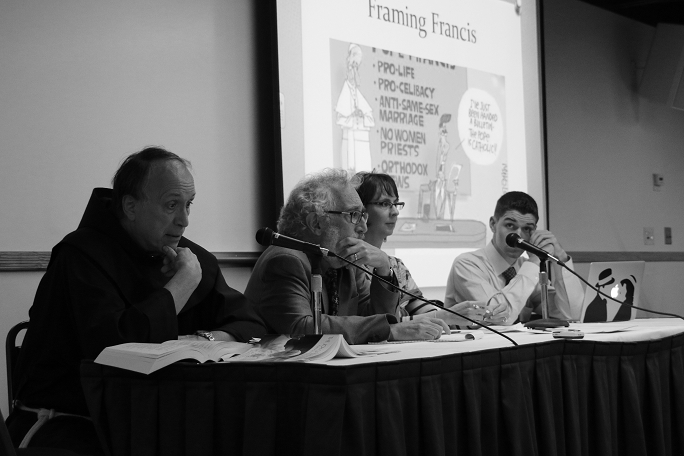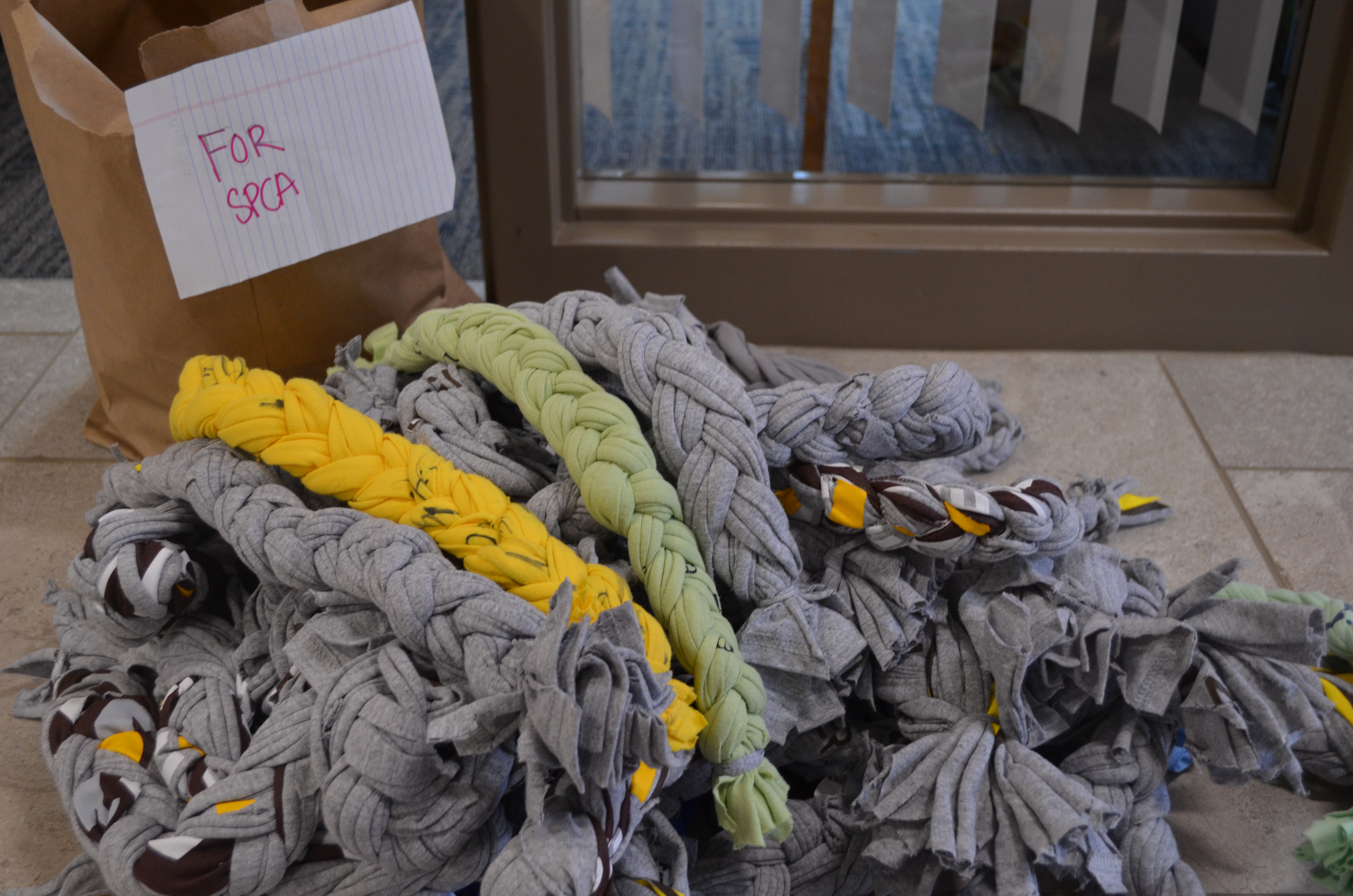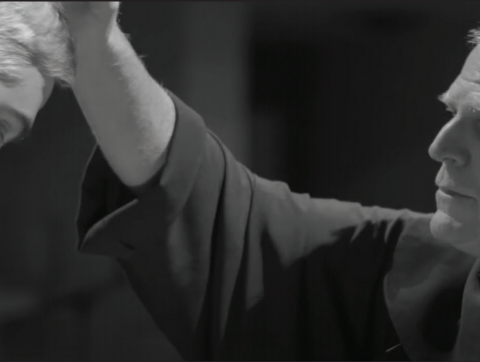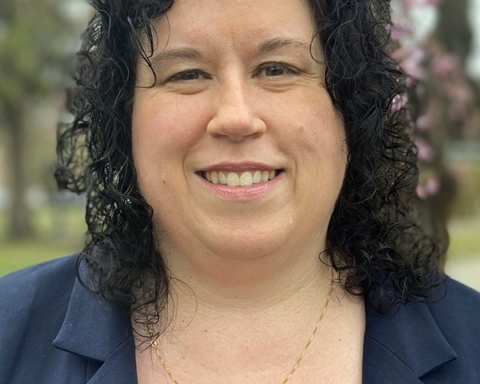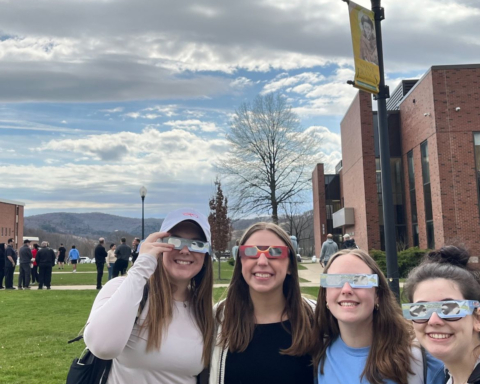By Rachel Konieczny
News Assignment Editor
Francis week presentation, titled “Francis Goes to Washington,” included speakers Joel Horowitz, Ph.D.; Fr. Dominic Monti, O.F.M.; Mary Rose Kubal, Ph.D. and James (J.W.) Cook, junior political science major, respectively.
Horowitz began the presentation on Tuesday evening. The professor of history commented on the geography of Argentina, Pope Francis’ birthplace.
“I think most individuals, like Francis, reflects, to some degree, where he’s from,” Horowitz said. “Like all other individuals, he’s not a perfect representation of the country, but [you] can take the man out of the country, but you can’t take the country out of the man.”
The history professor talked about the differences between Argentina and the U.S., specifically regarding social norms in contemporary society.
“Some of the [media] commentators seemed surprised that he didn’t frontally address the question of legalization of same-sex marriage,” Horowitz said. “I don’t think [these issues] should have been because if you look at [Pope Francis’] reaction in Argentina, same-sex marriage was legalized in the city of Buenos Aires in 2002; it was legalized by legislation [by Congress] in 2010.”
Horowitz, who has been featured in La Nación (The Nation), an Argentinian daily newspaper, said same-sex marriage talk disappeared, substantially, from the media in between the time frame of 2002 and 2010. In contrast, anything Pope Francis said about same-sex marriage was covered on a daily basis, said Horowitz.
Father Monti then commented on the religious aspect of the panel discussion.
“I think it’s very important to realize, especially since the Second Vatican Council, the Church [admits] that we’re living in a pluralistic society,” Monti said. “You’ll notice the pope, in his statements, when he’s talking to an audience… always ends up phrasing to keep [Catholics] in line.”
He referenced the pope’s closing statement to Congress that said, in summary, “even if you’re not religious, think of me,” as paraphrased by Monti.
Monti also referenced Pope Francis’ Twitter presence. He currently has 7.4 million followers, regarding the “common good,” as mentioned by Pope Francis. Monti said the “common good” could refer to many aspects of life.
Kubal, associate professor of political science, presented a slideshow that referenced the age of socialism and the difficulty for Congress to change agents of socialization.
Kubal referenced the LexisNexis database, which is a word categorization system for filing news stories by certain words in the story. According to Kubal, 1,401 articles referenced Pope Francis [after He spoke to Congress]. Of those, Pope Francis spoke on family 566 times, immigration 278 times and arms trade 24 times.
“It’s a pretty rough way to measure press attention, but it does give us an idea of which issues the press coverage focused on,” Kubal said.
The political science professor used a slide titled “Lefty Francis” to show Pope Francis’ contradiction as compared to Congress (see photo).
Cook referred back to Horowitz’s prior statements on personal biases.
“I am a little biased, I’m a student; I have my own political beliefs, but I’m going to read you what I’ve written tonight [at the panel],” Cook said.
Cook said Pope Francis addressed the most divided Congress—referencing House Speaker John Boehner, who announced his retirement Tuesday morning.
He compared a metaphor of reverting back to childhood block toys, where trying to put the triangle in the square block doesn’t fit.
“That’s kind of how I’m interpreting the pope’s message into our American political system—it almost just doesn’t fit,” Cook said. “It’s not a political speech in our terms, and when we hear the speech, it doesn’t sound right, especially on the House floor, of all places.”
koniecrc14@bonaventure.edu

